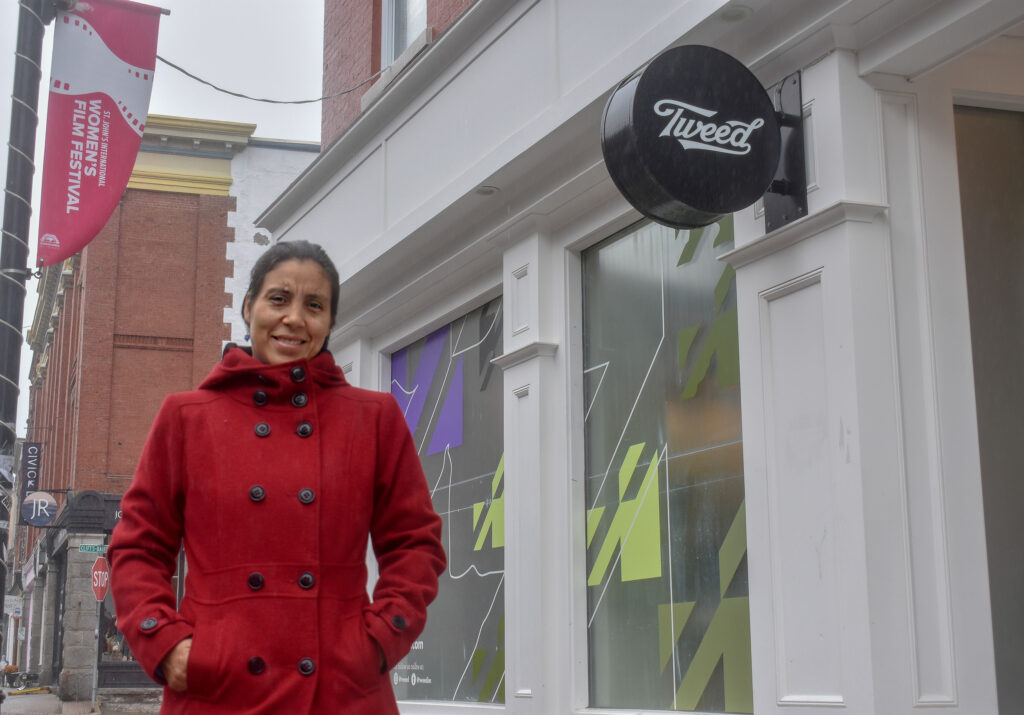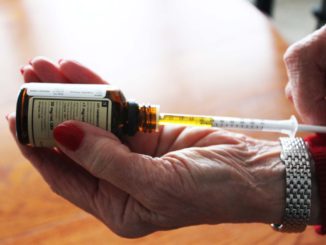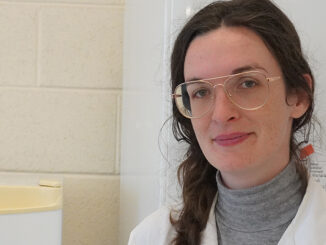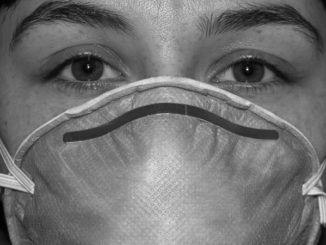Marijuana over packaging is an issue for the environment.
Nick Travis
Kicker

Viviana Ramírez Luna, a member of Newfoundland and Labrador’s Social Justice Co-Op, tries to live her life with as little waste as possible.
She doesn’t consume marijuana herself, but as a member of a zero-waste action team, the large amount of plastic packaging from cannabis outlets like Tweed is a concern for her. While Tweed does have recycling programs for their containers, she believes that leaving recycling up to consumers isn’t going to eliminate waste.
“As consumers, we know we have a huge power to influence,” said Luna. “However, there is the danger that they’ll say, ‘Oh yes, our packaging is recyclable,’ but from the zero waste perspective, can you reduce that? Can you eliminate that packaging? Because zero waste is also zero recycling.”
Stephen Wilkins is the founder of Child Safe Packaging Group – a Welsh advocacy group to make packaging child-safe in Europe. He believes aluminum blister packs such as the ones used for medication would reduce waste and eliminate plastic use. He also notes that paper and aluminum are much easier to repurpose and dispose of.
“For solids, you can basically have strip and blister packs, which are basically aluminum and paper,” said Wilkins from North Wales in the UK. “Blister packs are fine – blister packs encased in a cardboard retail pack. That’s very popular in Europe, less so in the United States and Canada. So it is very possible to go plastic-free.”
“… plastic doesn’t throw itself into the sea.” – Stephen Wilkins
Luna believes that an even more environmentally friendly option is refillable containers, as long as proper sanitation precautions are followed.
“[Tweed] could have containers that you drop off there, and they don’t even have to recycle,” said Luna. “Maybe they can sterilize and put them out for the customer again so that package is still there over and over again without further processing, without further use of energy and resources. That’s what zero waste is about.”
Wilkins says that while reducing plastic waste may seem noble, it doesn’t entirely stop pollution. For recycling to be effective, people need to put in the time to recycle these alternative products such as aluminum blister packs.
“Aluminum is very recyclable,” Wilkins said. “You would basically recover the aluminum foil from a blister pack using a process of pyrolysis, where you burn off the paper laminate and then you could recover the aluminum. But you have to keep in mind that plastic is recyclable. And plastic doesn’t throw itself into the sea. Recycling is a human endeavour, and just going plastic-free isn’t going to solve the problem. It’s a problem of education as well.”
Kicker contacted Tweed about their plan to eliminate plastic waste caused by their packaging by 2030. While Tweed responded via email, Kicker does not publish emailed responses when the source is capable but unwilling to do a live interview.
While Kicker made media requests, the federal government did not provide a contact for this story.




Be the first to comment